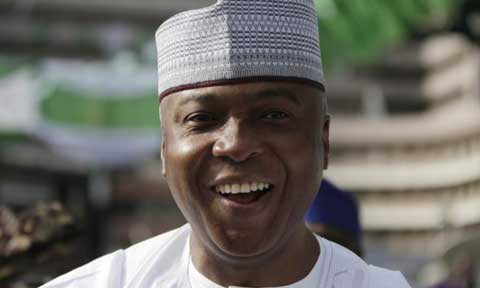It’s a lot of money for anybody to do away with especially when it is deserved. But that isn’t much of a big deal for the immediate past president of the Nigerian Senate, Bukola Saraki. Saraki, very aware of how much N17.4million ($20,000 plus) could change other people’s lives has rather directed that the said amount – his severance package – be donated to families of victims of the Boko Haram insurgency in the North-East of his home country, Nigeria.
What are other politicians and legislators doing for the constituents they are supposed to serve and with their taxes?
Nigerian parliamentarians have since 2018 been discussing compensation that will be paid to them. With a 750,000 naira ($2,000 plus) per month plus allowances of 13.5 million naira per month for Senators, that brings their total package to 14.25 million naira per month (slightly less than $40,000).
In Ghana, Members of Parliament are pushing an agenda for the justification of why they deserve a retirement welfare package aside from the ex-gratia (severance) they take after the end of the tenure of each parliament, every four years.
MPs say that they do not make enough after they leave office, coupled with the complaint that they also have to sometimes contribute to the upkeep of some of their constituents, believing that such a policy will cushion them during retirement.
This is besides the new tax measures introduced by the government in July 2018, including a high net worth income tax that is reported to be affecting the net worth of MPs pegged at GHc11,000 ($2,000). This was a measure to raise more revenue target for the 2018 fiscal year.
The situation in Kenya isn’t any different. A study by the UK-based Independent Parliamentary Standard Authority and the International Monetary Fund ranked Kenya’s legislators the world’s second most highly paid, after Nigeria.
Each of the 416 servant leaders received Sh2.25 million (nearly $22,000) over and above their monthly pay in April, the backdated amount for the contentious allowance. This has become the case after an October 2018 judgement by Justice Chacha Mwita that ruled that deputy governors, like other state officers, are entitled to a house allowance.
South African MPs currently earn between R1,600,467 ($107,000 plus) for Senior MPs through to R1,106,940 ($74,000 plus) a year, or R92,245 ($6,200 plus) a month for regular MPs.
That is the statistics for most parts of Africa and the growing demands by parliamentarians, and in essence, politicians, for higher pay and even severance. However, Bukola Saraki seems pretty sure that the families of these victims need the money more than he does.

In this novelty act, Saraki has directed that the National Assembly Management should distribute his severance allowance to the families of three victims of the insurgency in the North-East of Nigeria.
By that, 20 per cent of the severance allowance will be donated to the family of Leah Sharibu, the only remaining schoolgirl in the Boko Haram captivity of February 2018, while 20 percent will also be paid to the families of Hauwa Liman and Hussaini Ahmed Khoisan, the aid workers brutally murdered by Boko Haram after they were captured.

The former Senate President also directed that a Trust Fund be established by the management of the National Assembly for children of late members of the Eighth Senate who may require financial assistance in furtherance of their education.
[advpoll id=”613″ title=”Advanced Poll” width=”270″]










